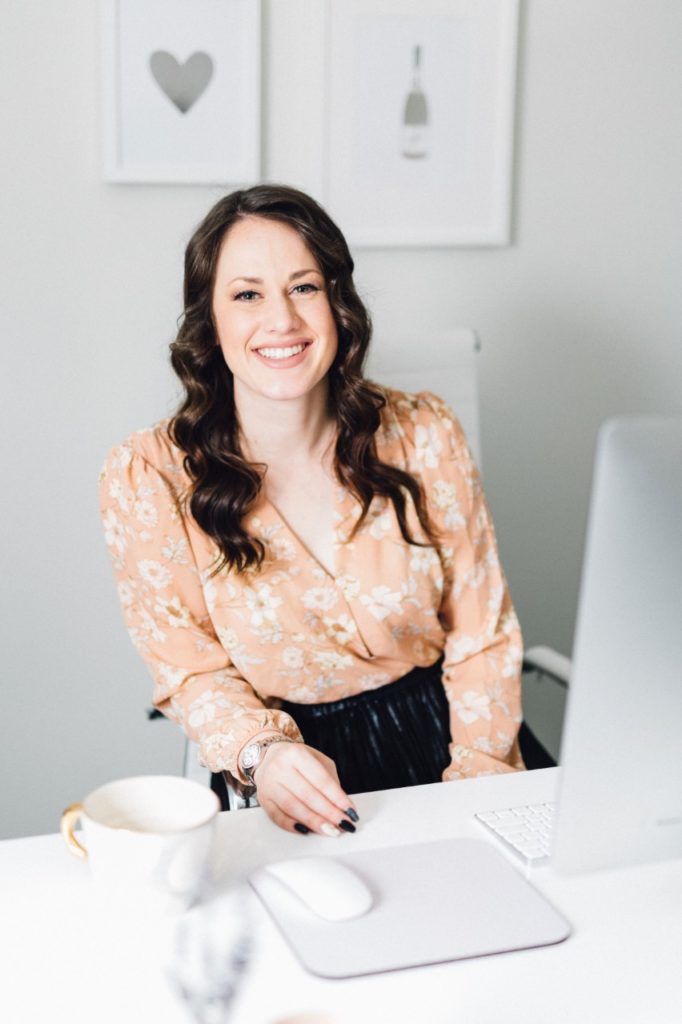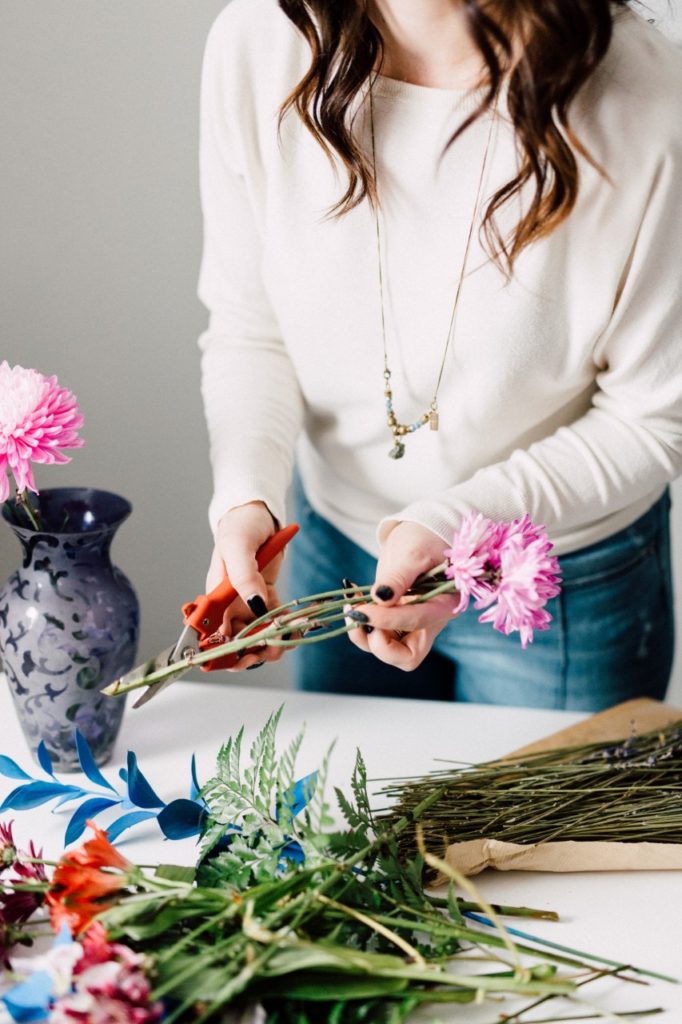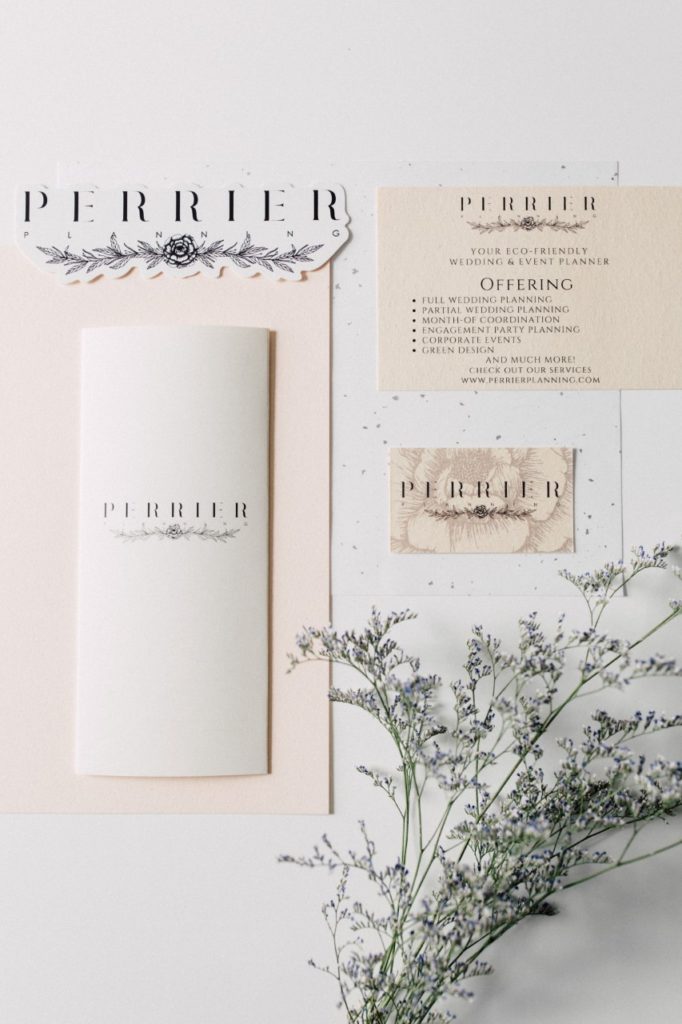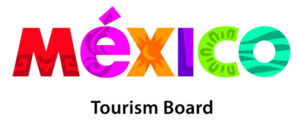
Holly Barraclough, BA, WPICC, CWD of Perrier Planning
Perrier Planning is an eco-friendly wedding and event planning company based out of Toronto, Canada. We make the most important events in our clients’ lives as memorable and enjoyable as possible, while taking the time to drastically lower their event’s carbon footprint.
The Covid-19 pandemic really hit the weddings and events industry hard; businesses were forced to reconsider their business model, reinvent their services and for some, it even meant the end of an era. Luckily, the wedding industry is starting to re-emerge from the shadows with new perspectives, creative ideas and very organized desktops. As a wedding professional myself, I know that trends enter and leave this industry as the seasons change, but I think one trend is here to stay – saving the planet.
On average, micro-weddings produce a much smaller carbon footprint than traditional weddings (pre-COVID), making your job even easier as you start to incorporate eco-friendly practices into your company model.
A Few Terms to Define:
Carbon Footprint = A carbon footprint is historically defined as the total greenhouse gas emissions caused by an individual, event, organization, or product, expressed as a carbon dioxide equivalent.
Post-consumer Recycled = An object or paper product that has been used by a human consumer, recycled, and then made into a new product. Companies can label paper products as “recycled” if they just use the paper scraps from the paper mill to make their products. This means it hasn’t actually been used by a human and then recycled – so make sure to always use post-consumer recycled paper!
So how does a wedding vendor go about changing their values to reflect a more sustainable business model with low waste practices?
Here is a six-step guide to “greening up” your business practices in the wedding industry:
1) View every transaction you make for your business through an environmentalist lens and think of yourself as an eco-conscious consumer.
To do this I ask myself the following questions:
· Where is this product made? Can I search for something similar for my cliental that is made in Canada?
· What is this product made from? Can I possibly buy this second hand or made from post-consumer recycled materials?
· How is this product preserved or grown? Can I find a version of this that is preserved naturally and grown without hormones or pesticides?
· Do I really need to buy this for the event, or could I rent it from someone else (even if it means a bit more work for my company)?
2) Switch to hemp paper, go paperless or make a pledge to only buy (or recommend) post-consumer recycled paper products for your clients. This goes for business advertisements as well.
Interested in the benefits of switching to hemp paper for all your business needs? Check out this blog post by Lara Moses.
3) Recommend like-minded vendors to your clients who also practice sustainability. It shows your clients you care about your community and it supports other eco-conscious vendors.
4) Advertise yourself as an eco-conscious company on your website and social media channels and share your green choices.
This goes for photographers, videographers and officiants too! Even if you don’t have a specific eco-friendly product to sell, customers still want to know your values.
For example, there are not many things you can do as a photographer to “green up” your business if you already have online digital galleries, but your customers will still be happy to know that you won’t be showing up on-site with a disposable coffee cup and plastic-wrapped lunch. Practice what you preach for your business in your everyday life.
5) Use up what you already have!
Already have a box of business cards and brochures printed out? Use those up first, before transitioning over to an eco-friendly alternative. It takes a while to fully transition your business over to a more sustainable model, so be gentle with yourself along the way – no one is perfect.
6) Buy or Make Green Cleaning Products!
Whether you are cleaning up your office, wiping down chairs before a ceremony, or cleaning up after a micro wedding – always use products that are free from toxic chemicals and made in Canada. Many cleaning products from outside Canada are not regulated properly and have cancer-causing chemicals in them. Stop buying Lysol wipes and start making your own cleaning disinfectant with simple ingredients like white vinegar, vodka, essential oils and water.










Leave a Reply